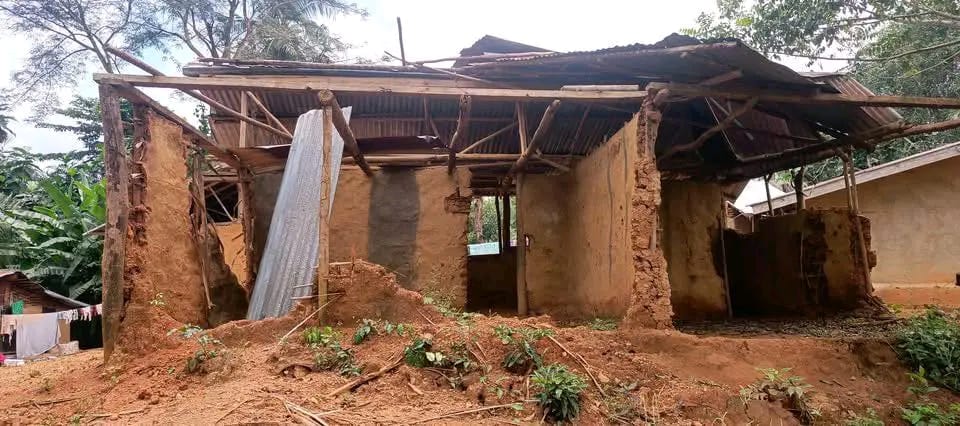The collapse of the only public school in Gbarn-la Town, Bong County, Liberia, has plunged the community into an educational crisis, leaving over 500 children without access to learning at the start of the new academic year. The community-built structure, which housed students from primary to junior high levels, now stands in ruins, a stark symbol of the neglect plaguing Liberia’s rural education system. Cracked walls, a damaged roof, and unsafe classrooms have forced the abandonment of the facility, dashing the hopes of a community that had invested their own resources to provide education for their children. This unfortunate event underscores the precarious state of many schools in Liberia, where communities struggle to maintain basic educational infrastructure with limited government support.
The closure of the school has far-reaching consequences for Gbarn-la Town, a community of over 5,000 residents. Education, once a beacon of hope for a brighter future, is now out of reach for many children. Parents express deep concern about the future of their children, fearing that they may be forced to drop out of school entirely. The alternative – walking long distances to attend schools in neighboring communities – is often too costly and dangerous for families already struggling to make ends meet. The situation highlights the critical need for immediate intervention to prevent a generation of children from being deprived of their fundamental right to education.
The plight of Gbarn-la Town reflects a broader systemic issue within Liberia’s education system. Many rural communities, like Gbarn-la Town, rely on self-built structures with minimal resources and inadequate government support. These schools are often poorly equipped, lack qualified teachers, and are vulnerable to damage from the elements. Civil society groups and education advocates argue that the government’s failure to invest adequately in public education has created a two-tiered system, where children in rural areas are disadvantaged compared to their urban counterparts. This inequity undermines the nation’s development goals and perpetuates cycles of poverty.
The collapse of the school in Gbarn-la Town is not an isolated incident; it is a symptom of a chronic problem that demands immediate attention. Across Bong County and Liberia, children are learning in dilapidated classrooms, under trees, or not at all. This crisis jeopardizes the future of an entire generation and threatens to undermine Liberia’s long-term human capital development. Educational experts warn that prolonged absence from school will have a detrimental impact on children’s literacy and numeracy skills, hindering their ability to contribute meaningfully to society in the future.
The residents of Gbarn-la Town are appealing for urgent action. They are calling on Bong County authorities, the Ministry of Education, and national lawmakers to prioritize the rehabilitation of their school and provide adequate funding for its operation. They understand that education is not merely a privilege but a fundamental right enshrined in Liberia’s Constitution. Their plea is a desperate call for help, a reminder that the future of their community, and indeed the nation, depends on the education of its children. They are urging those in power to recognize the gravity of the situation and take concrete steps to ensure that all children have access to quality education.
The empty classrooms, broken benches, and blank blackboard in Gbarn-la Town symbolize the lost opportunities and shattered dreams of hundreds of children. The community awaits a response to their urgent pleas, hoping that the government will fulfill its constitutional obligation to provide education for all. The children of Gbarn-la Town deserve the chance to learn, to grow, and to contribute to the development of their community and nation. Their future, and the future of Liberia, hangs in the balance. The time for action is now, before another generation is lost to the cycle of poverty and underdevelopment.














